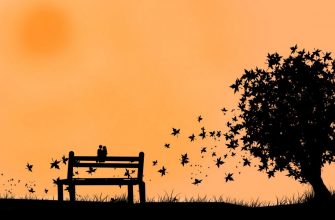English2017
Английский для всех простым языком
Биография Александра Сергеевича Пушкина на английском
Alexander Pushkin Biography
He was a Russian poet, short-story writer, novelist, and dramatist commonly considered as Russia’s greatest poet and the founder of modern Russian literature. Born into an aristocratic family, Pushkin attended school at the prestigious Imperial Lyceum at Tsarskoye Selo from 1811-1817.
He published his first poem at the age of 15.
In 1817 Pushkin accepted a post in the foreign office at St. Petersburg.
His first major work was the poem Ruslan and Ludmila. His political verses associated him with the Decembrist revolt, causing him to be banished in 1820.
In Mikhailovskoe he writes the chapters of Eugene Onegin and his historical tragedy Boris Godunov, which was not published until 1831. The year after the 1825 Decembrist Revolt, in which several of Pushkin’s friends were involved, Pushkin was pardoned by Tsar Nicholas I and allowed to return to Moscow.
In 1831 Pushkin married Natalya Nikolayevna Goncharova and settled in St. Petersburg.
Among Pushkin’s most characteristic features were his wide knowledge of world literature, as seen in his interest in such English writers as William Shakespeare, Lord Byron, Sir Walter Scott, and the Lake poets.
In 1837, Pushkin was mortally wounded defending his wife’s honour in a duel with d’Anthès. The duel took place on 27 January at the Black River. He died two days later, on 29 January at aged 37.
Alexander Pushkin was buried on the territory of the monastery Svyatogorsk Pskov province beside his mother.
Перевод
Он был русским поэтом, автором коротких рассказов, романистом и драматургом, широко известный как величайший поэт России и основатель современной русской литературы. Родившись в аристократической семье, Пушкин посещал школу в престижном Императорском лицее при Царском Селе с 1811 по 1817 годы.
Свое первое стихотворение он опубликовал в возрасте 15 лет.
В 1817 году Пушкин принял должность в Коллегии иностранных дел в Петербурге.
Его первой крупной работой была поэма «Руслан и Людмила». В 1820 году его ссылают в ссылку за его политические стихи которые были связаны с восстанием декабристов.
В Михайловском Пушкин пишет главы романа «Евгений Онегин» и его историческую трагедию «Борис Годунов», которая не была опубликована до 1831 года. Через год после восстания декабристов 1825 года, в которое были вовлечены несколько друзей Пушкина, Пушкин был помилован царем Николаем I и позволил вернуться в Москву.
В 1831 году Пушкин женился на Наталье Николаевне Гончаровой и поселился в Петербурге.
Среди наиболее характерных черт Пушкина были его широкие познания в мировой литературе, о чем свидетельствуют его интерес к таким английским писателям, как Уильям Шекспир, лорд Байрон, сэр Уолтер Скотт и поэты из Лейка.
В 1837 году Пушкин был смертельно ранен, защищая честь своей жены в поединке с Ж. Дантесом. Дуэль состоялась 27 января на Черной речке. Умер два дня спустя, 29 января в возрасте 37 лет.
Александр Пушкин был похоронен на территории монастыря Святогорск Псковской губернии рядом с матерью.
My Favourite Writer (A.P. Chekhov). Мой любимый писатель (Антон Павлович Чехов)
My Favourite Writer (A.P. Chekhov)
My favourite writer is Anton Pavlovich Chekhov. In my opinion, he is the greatest Russian dramatist and short-story writer. I’m never tired of reading and rereading his plays and humorous stories.
Chekhov was bom in 1860 in Taganrog. In 1879 he went to Moscow, where he studied medicine. Though he practised little as a doctor in his lifetime, he was prouder of his medical knowledge more than of his writing talent.
While in college, Chekhov wrote humorous sketches for comic papers to support his family. He collected the best ones into a volume, Motley Stories, in 1886. The book attracted the attention of the publisher of the Novoje Vremja and Chekhov was asked to contribute stories regularly.
Chekhov, as an established writer, managed to develop a style of his own. Though he never gave up writing comic stories, he began working in a more serious vein. In 1887 «Ivanov», his first play, established Chekhov as a dramatist.
From then on, he concentrated on writing plays, as well as short stories.
Chekhov was seriously ill. He had tuberculosis and knew what it meant. By 1892 his health was so bad that he was afraid to spend another winter in Moscow. He bought a small estate near a village Melikhovo, 50 miles from Moscow. He spent 5 years there, and those were happy years in spite of the illness. He wrote some of his best stories there, including «Ward No.6», several well-known one-act comedies and two of his serious dramatic masterpieces, «The Seagull» and «Uncle Vanya».
«The Seagull’ was first staged in the Alexandrinsky Theatre in Petersburg. It was a complete failure because of the dull and clumsy production. It was a cruel blow to Chekhov. However, the play was successfully performed as the first production of the Moscow Art Theatre in 1898. From then on, Chekhov was closely connected with this theatre and with its founder, K.S. Stanislavsky. In 1901 he married an Art Theatre actress, Olga Knipper, who acted in his play The Three Sisters the same year.
Chekhov’s health went from bad to worse and he had to spend the remaining years in the Crimea and other health spas.
«The Cherry Orchard», his last play, was produced in 1904. Soon after the first night Chekhov died. He was 44.
Chekhov had an immense influence on the 20th century drama. Besides, several generations of writers both in Russia and abroad studied and imitated Chekhov to perfect their own literary style.
Мой любимый писатель (Антон Павлович Чехов)
Чехов родился в Таганроге в 1860 году. В 1879 году он уехал в Москву, где изучал медицину. Хотя он мало практиковал как врач в своей жизни, он гордился своими медицинскими знаниями больше, чем писательским талантом.
В университете, Чехов писал юмористические рассказы для газет, чтобы поддерживать свою семью. Он собрал лучшие в сборник «Пестрые рассказы», в 1886 году. Книга привлекла внимание издателя Нового Времени, крупной газеты в России, и Чехову было предложено сотрудничать регулярно.
Чехову, как признаному писателю, удалось разработать свой собственный стиль. Хотя он никогда не бросал писать юмористические рассказы, он начал работать в более серьезном ключе. В 1887 «Иванов», первая пьеса, созданная Чеховым, ознаменовала его как драматурга.
С тех пор он сконцентрировался на написании пьес, а также коротких рассказов.
«Чайка» была впервые поставлена в Александринском театре в Петербурге. Это был полный провал из-за скучной и неуклюжой постановки. Это было жестоким ударом для Чехова. Тем не менее, пьеса была успешно поставлена Московским Художественным театром в 1898 году. С тех пор, Чехов была тесно связан с этим театром, и с его основателем, К. С. Станиславским. В 1901 г. он женился на актрисе МХАТ, О. Л. Книппер, которая играла в его пьесе «Три сестры» в том же году.
Здоровье Чехова становилось все хуже и хуже, и ему пришлось провести оставшиеся годы в Крыму и других курортах.
«Вишневый сад «, свою последнюю пьесу он выпустил в 1904 году. Вскоре после премьеры Чехов скончался. Ему было 44.
Чехов оказал огромное влияние на драму двадцатого века. Кроме того, несколько поколений писателей в России и за рубежом изучали его творчество и подражали ему, чтобы совершенствовать свой собственный литературный стиль.
Сочинение «My Favourite Writer» с переводом
My Favourite Russian Writer is Chekhov
Anton Pavlovich Chekhov (1860-1904) is a well-known Russian writer who had a great influence on the development of Russian literature and that of the world. He was one of the most prominent representatives of the school of critical realism in Russian and world literature. Chekhov despised all forms of vulgarity, philistinism and lack of will-power — the qualities that were common in the pre-revolutionary society of Russia.
Chekhov was active in the struggle for a better future of his country and as time went on believed more and more in the nearness of that future.
His childhood was difficult. Chekhov’s father, a merchant, went bankrupt and had to go into hiding from his creditors.
While still a student at the Medical Department at Moscow University, in order to keep himself and help his parents out, Chekhov used to give private lessons and write articles for newspapers.
After finishing the University Chekhov became a successful doctor and at the same time was writing a lot.
While he was living in Melikhovo he treated peasants, built school for peasant children, toured the famine-stricken provinces (1892), during the epidemic of cholera he worked as a doctor (1892-1893), took part in the national census (1897), all the time working hard and fruitfully at his writing.
His famous stories and plays The Sea Gull, Uncle Vanya, The Three Sisters and The Cherry Orchard all appeared one after another. They portrayed pre-revolutionary Russian life and the hopeless existence of the people.
The heroes of Chekhov’s stories lived in anticipation of something new. They dreamt of another, happier life, although they didn’t know which path to take to reach it.
Chekhov gained international recognition in his lifetime. His stories and plays were translated into many languages.
In Europe, Prague is regarded as the birthplace of the translations of Chekhov’s works. His first story, First Class Passenger, appeared there in 1886, and the first European premiere of The Sea Gull took place in Prague, three days before the Moscow Art Theatre’s famous production in 1898. The Sea Gull was a huge, extraordinary success.
Chekhov’s connection with English readers began with a letter written by an English translator Constance Black Garnett (1862-1946), who translated Turgenev and Tolstoy.
On December 11, 1896, she wrote:
«Dear Sir, I have read with great admiration several of your short stories in Russian, and have translated one or two of these, and I am trying to introduce your work to the English reader… But I hear that your play, The Sea Gull, has made a great sensation in Petersburg. If you would care to entrust me with the translation of it, I would make every effort to bring it before the English public. My father-in-law, Dr. Garnett (keeper of Printed Books of the British Museum), wishes me to ask you for a complete list of your writings, that we may add them all to the library of the Museum. Very truly yours, Constance Garnett».
The English translation of Chekhov’s complete set of works was published for the first time in 13 volumes in London and New York in 1916-1923.
In the 20th century more and more new translations of Chekhov’s works have appeared, and outstanding actresses and actors in almost all countries have acknowledged his talent as a playwright.
The success of Chekhov’s plays all over the world, the huge impressions of his books clearly prove the unpassing popularity of this writer and playwright. His books are among the treasures of world literature. They are loved, read, and re-read.
Anton Pavlovich Chekhov is my favourite writer.
Перевод на русский язык:
Мой любимый русский писатель — А. П. Чехов
Антон Павлович Чехов (1860-1904) — известный русский писатель, оказавший большое влияние на развитие русской и всемирной литературы. Он был одним из наиболее выдающихся представителей школы критического реализма в русской и мировой литературе. Чехов презирал все формы невоспитанности, мещанства и отсутствия воли — качества, которые были обычны в дореволюционном обществе России.
Чехов активно участвовал в борьбе за лучшее будущее своей страны, и с течением времени все больше верили в близость этого будущего.
Его детство было трудным. Отец Чехова, торговец, обанкротился и вынужден был скрываться от своих кредиторов.
Ещё будучи студентом Медицинского факультета Московского университета, чтобы поддержать себя и помочь родителям, Чехов обычно проводил частные уроки и писал статьи для газет.
После окончания университета Чехов стал успешным врачом и в то же время много писал.
В то время как он жил в Мелихове, он лечил крестьян, строил школу для крестьянских детей, объезжал охваченные голодом губернии (1892), во время эпидемии холеры работал врачом (1892-1893), принимал участие в национальной переписи (1897), всё время упорно и плодотворно работая в писательской сфере.
Его знаменитые рассказы и пьесы «Чайка», «Дядя Ваня», «Три сестры» и «Вишнёвый сад» появлялись один за другим. Они изображали дореволюционную российскую жизнь и безнадёжное существование людей.
Герои рассказов Чехова жили в ожидании чего-то нового. Они мечтали о другой, счастливой жизни, хотя и не знали, по какому пути идти, чтобы достичь её.
Чехов получил международное признание при жизни. Его рассказы и пьесы были переведены на многие языки мира.
В Европе Прага считается родиной переводов произведений Чехова. Его первый рассказ «Пассажир первого класса» появился там в 1886 году, а первая европейская премьера «Чайки» состоялась в Праге за три дня до знаменитого спектакля в Московском художественном театре в 1898 году. «Чайка» имела огромный, невероятный успех.
Связь Чехова с английскими читателями началась с письма, написанного английской переводчицей Констанс Блэк Гарнетт (1862-1946), которая перевела Тургенева и Толстого.
11 декабря 1896 года она написала:
«Дорогой сэр, я с большим восхищением прочитала несколько ваших коротких рассказов на русском языке и перевела один или два из них, и я пытаюсь представить Ваши произведения английскому читателю… Но я слышал, что Ваша пьеса, «Чайка», вызвала большую сенсацию в Петербурге. Если бы Вы доверили мне её перевод, я приложила бы все усилия, чтобы донести её до английской общественности. Мой тесть, доктор Гарнетт (хранитель печатных книг Британского музея), хотел бы попросить Вас составить полный список Ваших работ, чтобы мы могли добавить их все в библиотеку Музея. Искренне Ваша, Констанс Гарнетт».
Английский перевод полного собрания сочинений Чехова впервые был опубликован в 13 томах в Лондоне и Нью-Йорке в 1916-1923 годах.
В XX веке появлялись всё новые и новые переводы произведений Чехова, и выдающиеся актрисы и актёры практически во всех странах мира признали его талант драматурга.
Успех пьес Чехова во всём мире, огромные впечатления от его книг ясно свидетельствуют о постоянной популярности этого писателя и драматурга. Его книги составляют сокровищницу мировой литературы. Их любят, читают и перечитывают.
Антон Павлович Чехов — мой любимый писатель.
My favourite writer is Anton Pavlovich Chekhov. In my opinion, he is the greatest Russian dramatist and short-story writer. I’m never tired of reading and rereading his plays and humorous stories.
Chekhov was bom in 1860 in Taganrog. In 1879 he went to Moscow, where he studied medicine. Though he practised little as a doctor in his lifetime, he was prouder of his medical knowledge than of his writing talent.
While in college, Chekhov wrote humorous sketches for comic papers to support his family. He collected the best ones into a volume, Motley Stories, in 1886. The book attracted the attention of the publisher of the Novoje Vfemja, Russia’s largest paper, and Chekhov was asked to contribute stories regularly.
Chekhov, as an established writer, was able to develop a style of his own. Though he never gave up writing comic stories, he began working in a more serious vein. In 1887 Ivanov, his first play, established Chekhov as a dramatist.
From then on, he concentrated on writing plays, as well as short stories.
Chekhov was seriously ill. He had tuberculosis and knew what it meant. By 1892 his health was so bad that he was afraid to spend another winter in Moscow. He bought a small estate near a village Melikhovo, 50 miles from Moscow. He spent 5 years there, and those were happy years in spite of the illness. He wrote some of his best stories there, including Ward No.6, several well-known one-act comedies and two of his serious dramatic masterpieces, The Seagull and Uncle Vanya.
The Seagull was first staged in the Alexandrinsky Theatre in Petersburg. It was a complete failure because of the dull and clumsy production. It was a cruel blow to Chekhov. However, the play was successfully performed as the first production of the Moscow Art Theatre in 1898. From then on, Chekhov was closely connected with this theatre and with its founder, K.S. Stanislavsky. In 1901 he married an Art Theatre actress, Olga Knipper, who acted in his play The Three Sisters the same year.
Chekhov’s health went from bad to worse and he had to spend the remaining years in the Crimea and other health spas.
The Cherry Orchard, his last play, was produced in 1904. Soon after the first night Chekhov died. He was 44.
Chekhov had an immense influence on the 20th century drama. Besides, several generations of writers both in Russia and abroad studied and imitated Chekhov to perfect their own literary style.
Перевод
Мой любимый писатель- Антон Павлович Чехов. По-моему, он самый великий русский драматург и автор коротких рассказов. Я никогда не устаю читать и перечитывать его пьесы и юмористические рассказы.
Чехов родился в Таганроге в 1860 году. В 1879 году он уехал в Москву, где изучал медицину. Хотя он мало практиковал как врач в своей жизни, он гордился своими медицинскими знаниями больше, чем писательским талантом.
В университете, Чехов писал юмористические эскизы для газет, чтобы поддерживать свою семью. Он собрал лучшие в сборник «Пестрые рассказы», в 1886 году. Книга привлекла внимание издателя Нового Времени, крупной газеты в России, и Чехову было предложено сотрудничать регулярно.
Чехову, как признаному писателю, удалось разработать свой собственный стиль. Хотя он никогда не бросал писать юмористические рассказы, он начал работать в более серьезном ключе. В 1887 «Иванов», первая пьеса, созданная Чеховым, ознаменовала его как драматурга.
С тех пор он сконцентрировался на написании пьес, а также коротких рассказов.
«Чайка» была впервые поставлена в Александринском театре в Петербурге. Это был полный провал из-за скучной и неуклюжой постановки. Это было жестоким ударом для Чехова. Тем не менее, пьеса была успешно поставлена Московским Художественным театром в 1898 году. С тех пор, Чехов была тесно связан с этим театром, и с его основателем, К. С. Станиславским. В 1901 г. он женился на актрисе МХАТ, О. Л. Книппер, которая играла в его пьесе «Три сестры» в том же году.
Здоровье Чехова становилось все хуже и хуже, и ему пришлось провести оставшиеся годы в Крыму и других курортах.
«Вишневый сад «, свою последнюю пьесу он выпустил в 1904 году. Вскоре после премьеры Чехов скончался. Ему было 44.
Чехов оказал огромное влияние на драму двадцатого века. Кроме того, несколько поколений писателей в России и за рубежом изучали его творчество и подражали ему, чтобы совершенствовать свой собственный литературный стиль.
Russian writers of 19th Century
Perhaps the best known of the Russian writers is Leo Tolstoy. He was the son of rich landowner. His parents died when he was 9. He spent his time drinking and gambling and not caring about anything but pleasure. Then he went into the armv and fought in the Crimean War.
Tolstoy began writing stories first about the cruelty of war and then about the pride and self ishness of the Russian nobles and the misery of the peasants. He wrote a very famous book called «War and Peace», which many people think is even better than «Crime and Punishment». In this book he describes Napoleon’s invasion of Russia and the terrible retreat from Moscow in mid-summer. Tolstoy made himself unpopular with everyone. His wife and family were angry because he wanted to give away his property and money. In the end, in 1910, when he was 82 years old, he left his home with his youngest daughter, meaning to leave the life of a penniless wanderer, but very soon he caught pneumonia and died.
Another Russian writer of 19th century is Ivan Turgenev. He was the son of landowner. Turgenev’s famous novel «Fathers and Sons» is about a revolutionary. But he himself spent most of his life outside Russia, in Paris.
F. Dostoevsky spent 9 years in Siberia. Many people would say that long novel, «Crime and Punishment», the greatest novel ever written. Both this and his novel «The Brothers Karamazov», have been made into plays and films in English.
It was difficult and even dangerous to be a writer in Russia in the 19th century. Yet during this period Russia had some of the greatest writers of all times.
Русские писатели XIX столетия (перевод)
Наверное, самый знаменитый из русских писателей — Лев Толстой. Он был сыном богатого землевладельца. Его родители умерли, когда ему было 9 лет. Он проводил время в кутежах и азартных играх, не заботясь ни о чем, кроме удовольствия. Затем он пошел в армию и участвовал в Крымской войне.
Толстой начал писать рассказы о жестокости войны, а затем о гордости и эгоизме русских дворян и нищете крестьян Он написал знаменитую книгу «Война и мир», которая, как считают многие, лучше даже «Преступления и наказания». В этой книге он описывает нашествие Наполеона в Россию и позорное отступление из Москвы в середине лета. Толстой утратил популярность в обществе. Его жена и семья были недовольны тем, что он хотел раздать свое имущество и деньги. В конце концов в 1910 году, когда ему было 82 года, он ушел из дома с младшей дочкой с желанием вести жизнь безденежного странника, но вскоре он заболел пневмонией и умер.
Другой русский писатель XIX века — Иван Тургенев. Он был сыном землевладельца. Знаменитый роман Тургенева «Отцы и дети» повествует о революционерах. Но он провел большую часть жизни вне России, в Париже.
Ф. Достоевский провел 9 лет в Сибири. Многие считают, что его очень длинный роман «Преступление и наказание» — самый лучший из когда-либо написанных. По этому и другому роману — «Братья Карамазовы» было поставлено много пьес и фильмов.
В XIX столетии быть писателем в России было трудно и даже опасно. Хотя именно в этот период в России жили лучшие писатели всех времен.














